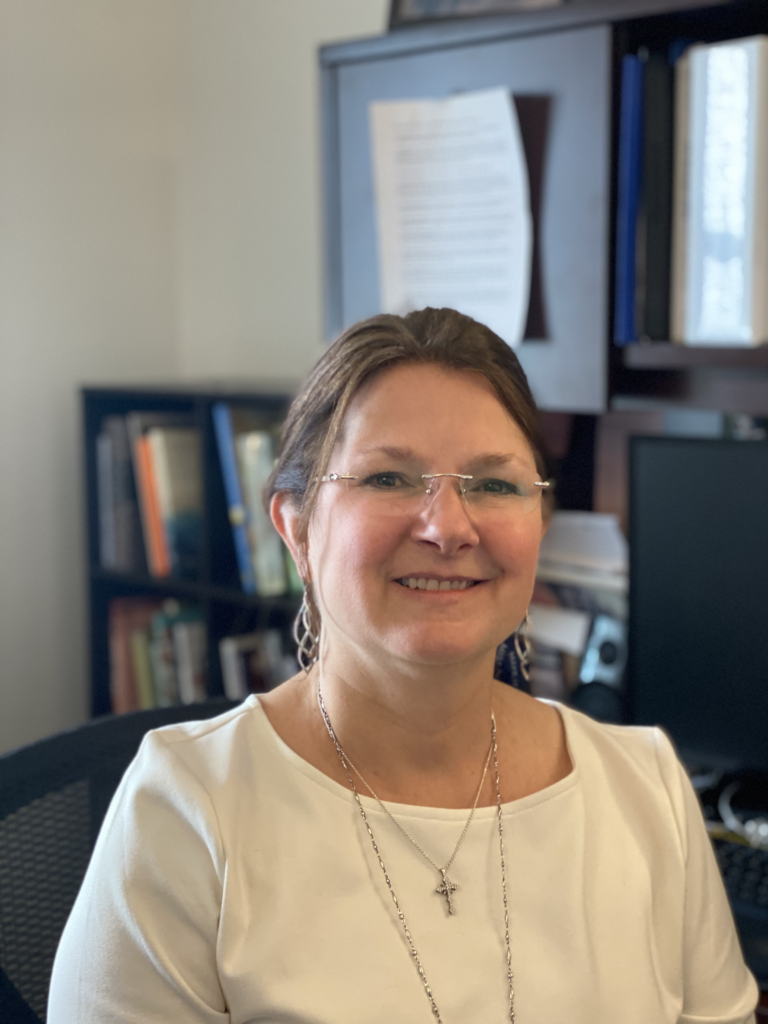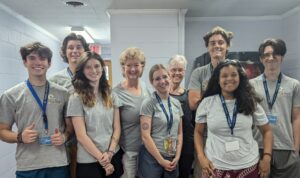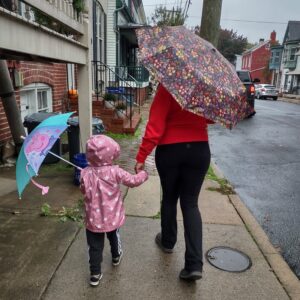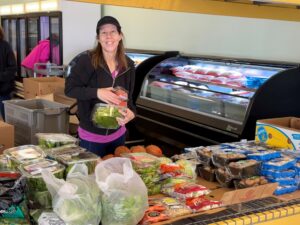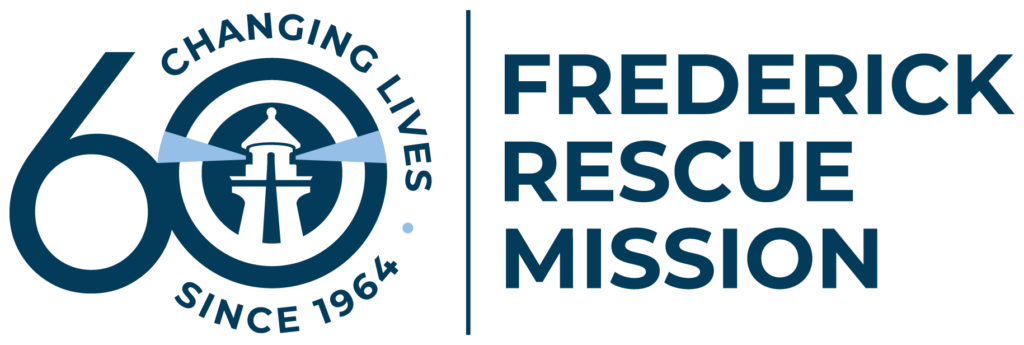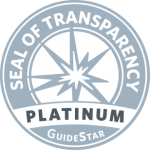“Wow! This is a REAL home, Mom!” exclaimed the son of one of the guest residents participating in the Transitional Living Program at the Faith House. In the son’s eight years, he bounced around from place to place with his mom. Sometimes with a roof over their heads and a couch or floor to sleep on provided by someone who may or may not be a safe person. Sometimes in a place where the only running water came from the tub’s dirty faucet. Sometimes outside with a thin blanket to keep warm and a bush to hide behind. When he walked into their unit at the Faith House for the first time, he felt like he was finally “home.”
Women come to Faith House experiencing homelessness for a variety of reasons. Many come after surviving domestic abuse, dysfunction in the family, or chronic illness. Some are recovering from substance use disorder, having tried self-medicating through substance use. However, all women come after experiencing trauma. 
The women coming to Faith House all struggle to make ends meet. Especially the women with children. According to the United Way’s 2020 ALICE IN FREDERICK COUNTY: A FINANCIAL HARDSHIP STUDY, for single-female-headed families with children, “the trend from 2010 to 2018 shows an 8 percent increase, but the number below the ALICE Threshold increased from 65 percent in 2010 to 79 percent in 2018.” ALICE stands for Asset Limited Income Constrained and Employed. One hundred percent of the women ministered to at Faith House fall within the poverty or ALICE population. They find it challenging to juggle work, childcare costs, transportation challenges, and finding affordable housing that fits into their budgets.
Faith House’s mission is to bring healing and hope to women and women with children who are experiencing homelessness. The program strives to change lives for now and for eternity. We help change lives “now” by offering a peaceful environment, case management, therapeutic conversations, and programming. The Faith House team helps women navigate the trauma to heal and find stability through employment and safe housing. We also offer weekly opportunities for moms and kids to have fun and bond together. Additionally, the program offers weekly personal development classes, covering topics such as self-care, healthy eating, and financial literacy skills.
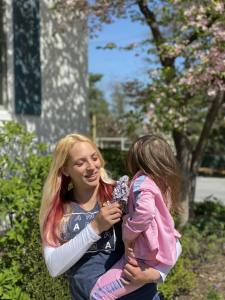 During therapeutic conversations with our program specialist, women learn about Adverse Childhood Experiences (ACEs), protective factors and build resiliency skills. According to the Veto Violence CDC website, “Adverse Childhood Experiences (ACEs) is the term given to describe all types of abuse, neglect, and other traumatic experiences or household challenges that occur to individuals under the age of 18.” The ACEs study compiled research by Kaiser. The study asked those surveyed ten questions to determine the number of traumatic experiences in those three categories. For every question the person answered in the affirmative, the study assigned a point. Therefore, people score anywhere from zero to ten. The higher a person’s ACEs score, the greater the likelihood of reduced health and well-being in adulthood. The 70-30 campaign shares almost two-thirds of those surveyed in the study reported at least one ACE. Individuals with four or more ACEs are 14x more likely to attempt suicide and 11x more likely to abuse intravenous drugs. People with six or more ACEs can expect to die twenty years earlier than people with zero ACEs. To put the level of trauma coming to Faith House in perspective, the women in our program average an ACEs score of eight. Thankfully though, we serve a big God. People can heal from ACEs and increase resiliency by increasing their protective factors. Faith House builds resiliency skills.
During therapeutic conversations with our program specialist, women learn about Adverse Childhood Experiences (ACEs), protective factors and build resiliency skills. According to the Veto Violence CDC website, “Adverse Childhood Experiences (ACEs) is the term given to describe all types of abuse, neglect, and other traumatic experiences or household challenges that occur to individuals under the age of 18.” The ACEs study compiled research by Kaiser. The study asked those surveyed ten questions to determine the number of traumatic experiences in those three categories. For every question the person answered in the affirmative, the study assigned a point. Therefore, people score anywhere from zero to ten. The higher a person’s ACEs score, the greater the likelihood of reduced health and well-being in adulthood. The 70-30 campaign shares almost two-thirds of those surveyed in the study reported at least one ACE. Individuals with four or more ACEs are 14x more likely to attempt suicide and 11x more likely to abuse intravenous drugs. People with six or more ACEs can expect to die twenty years earlier than people with zero ACEs. To put the level of trauma coming to Faith House in perspective, the women in our program average an ACEs score of eight. Thankfully though, we serve a big God. People can heal from ACEs and increase resiliency by increasing their protective factors. Faith House builds resiliency skills.
Faith House intentionally aims to change lives for eternity through Christ-centered devotions based on the Celebrate Recovery principles every evening. The Celebrate Recovery principles come from the Beatitudes and cover the twelve steps of recovery. These principles and the twelve steps supply a framework that offers help and hope to women hurting and healing from their hurts, habits, and hang-ups. It also builds a support system for them, which the American Psychological Association (APA) writes is the primary factor in resilience. The APA also reports that “relationships that create love and trust, provide role models and offer encouragement and reassurance, help bolster a person’s resilience.”
Around Faith House, we say, “Once you are a part of the Faith House family, you are always part of the Faith House family.” As women exit the program, our case manager continues to reach out to women to make sure they have all they need. She continues to be present to connect them to resources in our community. The program specialist reaches out weekly to continue discipling women through an emailed devotion and regular one-on-one contact. Through these discipling opportunities, we encourage women to share their prayer requests and praise reports. Within the following year, Faith House will plan its first annual Family Reunion. Current and previous guest residents will get together with the team to support one another and celebrate women’s successes.
During a conversation with a guest resident of our emergency shelter, she shared how glad she was to come home to Faith House after working each day. Before coming to our program, she does not remember a time when “home” was a place she wanted to return. She dreaded the fighting and never felt emotionally or physically safe – as a child or an adult. Faith House was safe. Peaceful. Filled with supporting and loving people. While this may be just a stop on her journey, just as the guest resident’s son from the Transitional Living Program, here, she feels at “home.”
